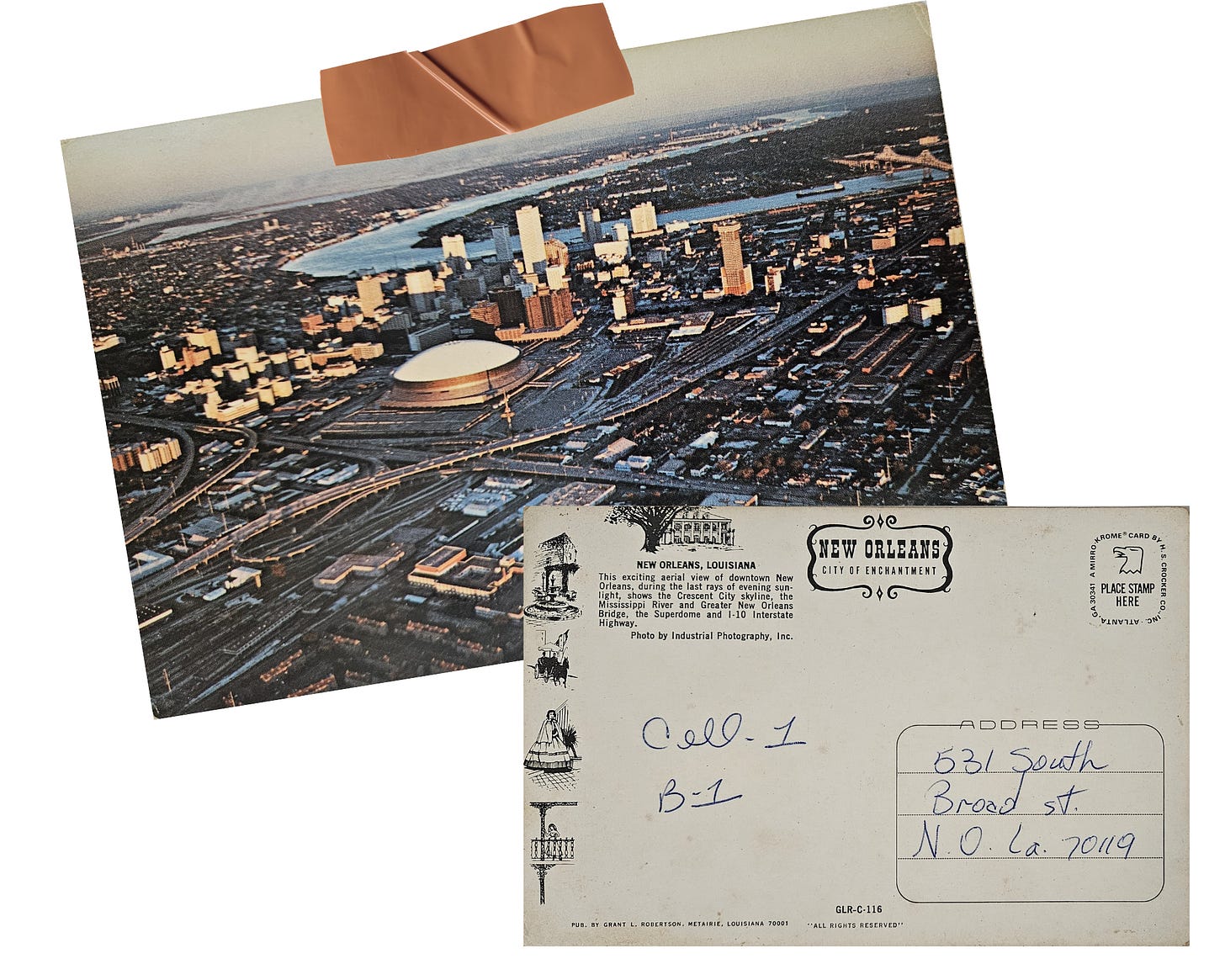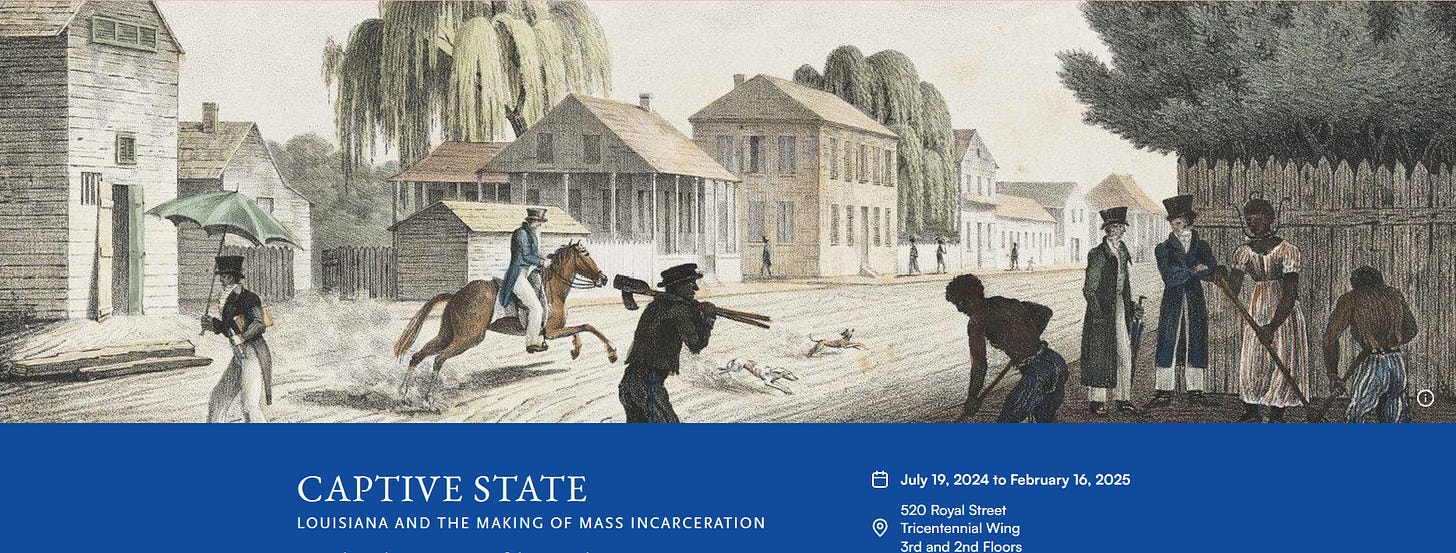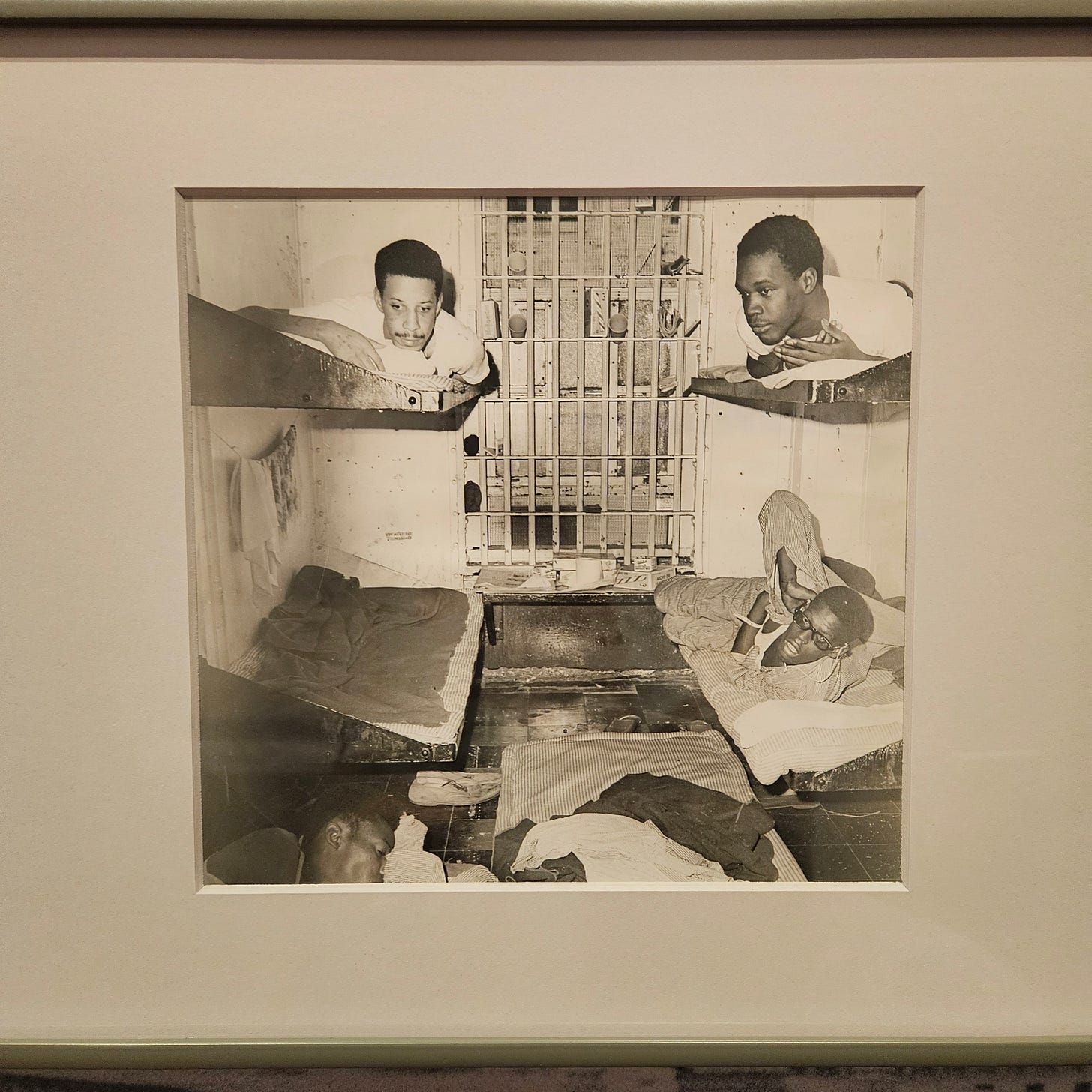A Mile from Home, A World Apart
And a photograph you have to see
From the Lockerbox
New Orleans is a one-of-a-kind city. People travel from all over the world to walk down Bourbon Street, ride the paddle steamers on the Mississippi, and hear the roar of the Superdome. When you grow up here, though, it’s easy to take those things for granted—you see them so often, they fade into the background.
Now, imagine living in your hometown for years without setting eyes on any of it. Imagine being trapped behind a door that lets you see nothing but the sky. Imagine being gone so long that you start to forget what the city even looks like.
You’d be amazed how quickly your memories fade in a place like Orleans Parish Prison (OPP). How soon you begin to question if something you once knew like the back of your hand is really the way you remember it.
In 1983, I was awaiting trial at OPP. My friend Arthur “Mickey” Rothschild was there with me. We started out together on A-1 tier. I’d gone to high school with Mickey; we both grew up in the Desire Project. The truth is, I knew a lot of guys in jail from growing up. That was one of the first things that hit me when I got locked up—how many familiar faces I saw.
After a while, it started to feel like jail was inevitable for us—that there was no other way for people who grew up poor in New Orleans. That realization, more than anything, is what pushed me to try to change things. But back then, that was still far off. At that moment, I was just a young man in jail, facing a first-degree murder charge and the death penalty.
One day, Mickey’s charges got dismissed, and he walked free. He went home. But he didn’t forget about me.
After he got out, he went down to the French Quarter and bought two postcards: one of the city skyline, and one of Bourbon Street.
Then he mailed them to me at the jail. He knew they’d help me feel connected to the world outside. My cell was only a mile from the places in those postcards, but after so much time locked up, they felt a world away.
I kept those postcards after I was convicted. I kept them after I was transferred to Angola. In fact, I kept them in my lockerbox for my entire incarceration. I don’t know why, exactly. Maybe because they were reminders of a hometown I wondered if I’d ever see again.
Over time, my lockerbox filled with postcards and photographs from friends who had been locked up with me and got out first. It was a small but important way we kept each other connected—a reminder that home was still out there, waiting for us to return.
Captive State
Thinking back on those years in jail, I’m reminded of an amazing exhibition—Captive State: Louisiana and the Making of Mass Incarceration—at the Historic New Orleans Collection. I hope you had a chance to see it.
Here’s a description:
“Learn how the institutions of slavery and mass incarceration are historically linked, and how these connections have made Louisiana the world leader in incarceration today.”
There’s a photograph in the exhibition that stopped me in my tracks:
This is exactly what it was like to live in a jail cell in New Orleans. Look at the makeshift clothesline one guy has strung up above his cot on the left. And the shelf at the far end—we used it to climb up onto the bunks. See the others sleeping on mattresses on the floor? Their mats are pressed up against the toilet, their feet nearly touching it. This was our reality for years—crammed into these tiny cells, making do with whatever we had.
But what really stands out to me now, after all these years, is how young those guys look. It reminds me that we were just kids.
If you’ve seen the exhibition, I’d love to hear what stood out to you. What images or stories stayed with you the most?
If you haven’t seen Captive State yet, there’s still time. The exhibition closes this Sunday, and you’ll find it right in the heart of the French Quarter. Admission is free.
If you know someone who might appreciate these notes from me, feel free to share this post and invite them to subscribe.
Take care,
Calvin






You are becoming a very good story teller. Can't wait till the book is released.
Loved what you wrote about the postcards. Good reminder to send postcards to some of my friends in prison. Thanks, buddy.